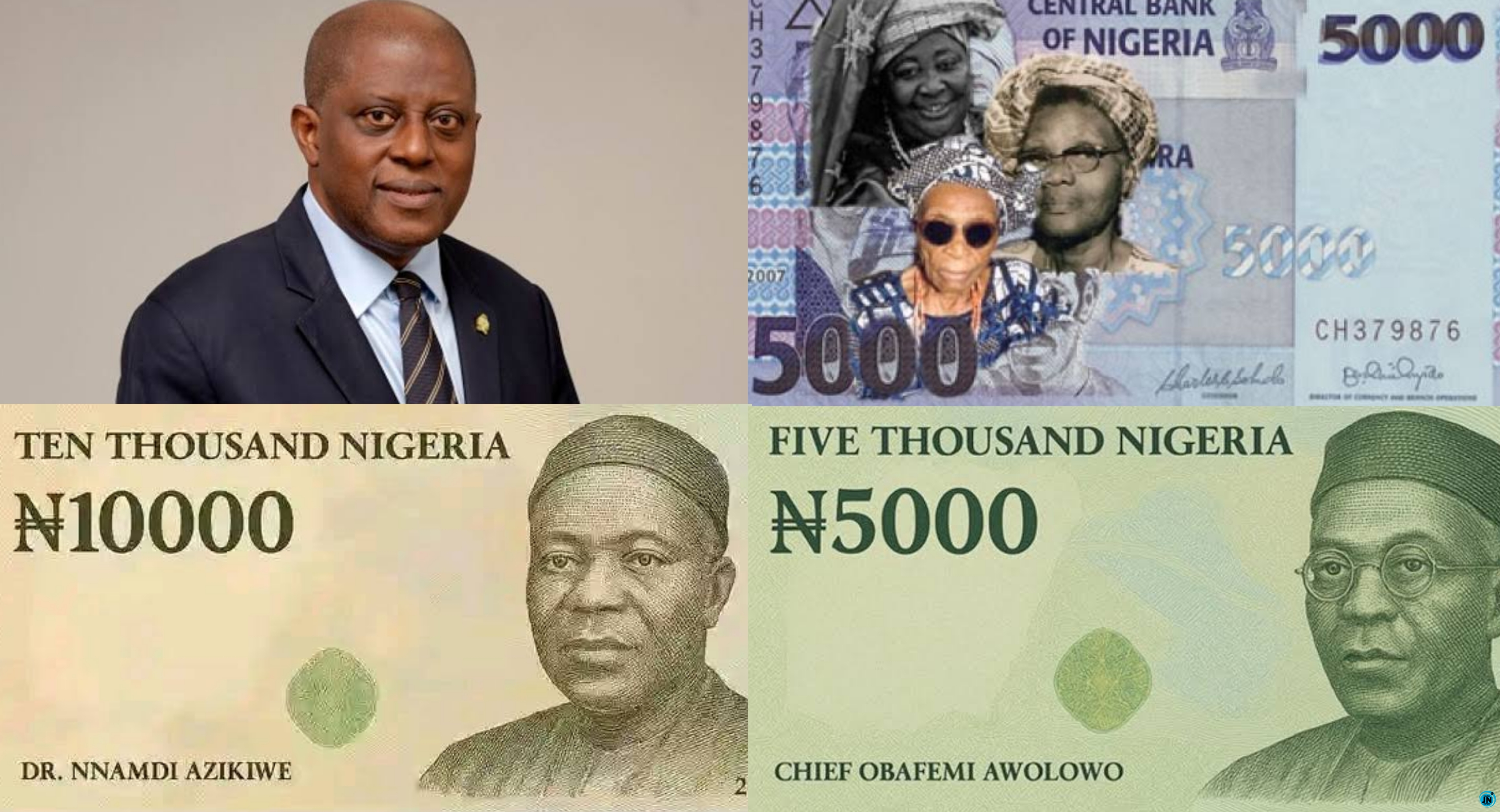
A fresh economic advisory report by Quartus Economics has recommended that the Central Bank of Nigeria (CBN) urgently introduce higher-denomination naira notes such as ₦10,000 (₦10k) and ₦20,000 (₦20k) to restore practicality, ease daily transactions, and reflect the current purchasing realities of the Nigerian economy.
The analysts argued that the continuous erosion in the naira’s value has rendered the current highest note — the ₦1,000 bill — significantly inadequate for modern economic use, forcing Nigerians to carry large amounts of cash for basic transactions.
Economic Report Says Naira Value Has Crashed by Over 90%
The report, titled “Is Africa’s Eagle Stuck or Soaring Back to Life?,” highlighted that since the ₦1,000 note was introduced in 2005, inflation and currency depreciation have drastically weakened its real value. According to the study, a ₦5,000 note proposed in 2012 would now be equivalent to nearly ₦50,000 today — reflecting a dramatic 94% erosion in currency strength over two decades.
The economists dismissed fears that printing higher-value notes would automatically fuel inflation, saying such claims are “misguided assumptions not backed by any empirical data.” Instead, the report emphasized that inflation results from broader economic factors like rising production costs, weak supply chains, and excess liquidity — not currency denominations.
Cash Transactions Becoming Increasingly Difficult
When the ₦1,000 note debuted in 2005, it was worth around $7 at the official exchange rate. Today, that same note carries a value of less than $1 — making it less useful for high-value purchases.
Quartus Economics noted that this decline has hit the informal economy hardest, as traders, rural retailers, transport operators, and artisans still depend heavily on cash. Everyday cash-based transactions, they said, have become stressful and inefficient due to the need to carry bulky cash amounts.
Additionally, the report warned that the CBN is incurring unnecessary costs printing, distributing, and securing large quantities of lower-value notes that quickly wear out due to heavy circulation.
Experts Call for Modern and Practical Currency System
“Beyond formal banking circles, the naira is becoming physically burdensome to use,” the report emphasized, noting that higher denominations would ensure portability, reduce transaction strain, and cut printing costs.
Quartus Economics also suggested that Nigeria could consider a full currency redenomination in the near future to simplify its monetary system — an approach several emerging markets have successfully implemented.
The think tank recalled that a ₦5,000 note was once proposed in 2012 under former CBN Governor Sanusi Lamido Sanusi but faced political resistance and was eventually shelved. However, they insist the current economic realities make the policy even more necessary today.
Demand Reflects Real Market Conditions
The report stressed that the proposal is about adjusting to reality, not printing excess cash. It referenced sharp increases in essential goods and services — from rice prices jumping from ₦150 per kilogram in 2005 to ₦2,500 today, to domestic flight tickets rising from ₦12,000 to as high as ₦150,000 — as evidence that the naira’s existing denominations no longer match market demands.
“Nigeria’s purchasing environment has shifted drastically, and the currency system must be modernized to match this shift. Higher denominations will restore currency convenience and economic functionality,” the report concluded.